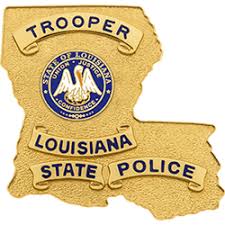Daniel Joseph Becnel
June 20, 2008June 25
June 25, 2008Forty years ago, Houma Indians could not set foot inside the Houma Municipal Auditorium.
On Saturday, it was the setting for the tribe’s swearing-in ceremony for seven of eight members elected to the tribal council.
“I guess that’s why we do so much in here now; it’s because we weren’t allowed in here,” said District 6 council member Thomas Dardar Jr., 52, who has served since 1992.
He was sworn in along with Lora Ann Chaisson (District 2), Janie Verret Luster (District 3), John Silver (District 4), Gwen Billiot (District 5), Todd Galle’ (District 7), and Michael Dardar (District 11).
Elected council member Laura Billiot (District 10) could not attend and districts 1, 8 and 9 seats are currently vacant. Council members serve four-year terms.
There is a consensus among council members, and the United Houma Nation in general, that the two most pressing issues are Federal acknowledgment and coastal erosion.
“Federal recognition has been a major issue for some time, and there’s a lot of resources that are attached to it that makes it worthwhile to pursue,” said Michael Dardar, 46, a council member since 1994.
Federally acknowledged Indian tribes have access to numerous financial assistance grants for education, job training, land development and the like, he said.
Last month, the Bureau of Indian Affairs denied federal acknowledgment of the Pointe-Aux-Chenes Indian Tribe and the Biloxi-Chitimacha Confederation of Muskogees, both of whom split from the United Houma Nation in 1996.
Both failed to meet three of the seven criteria set by the BIA for acknowledgment. These include establishing they existed as a distinct community before 1830, constituting a group with political influence or authority over their members before 1830 or providing proof that the tribes “combined and functioned as a single autonomous political entity.”
These were the same reasons the United Houma Nation was denied acknowledgment in 1994.
“When we get recognition, it’s going to open the doors for all of us – for our elders and our youth – to better our lives,” said Luster, 55, a first-term council member. “I hope to see that one day.”
The more immediate threat to the nation’s survival is coastal erosion. Most of the tribe lives along the coastline, which took big losses in land degradation and the seafood industry after hurricanes Katrina and Rita.
“If the land keeps fading, I won’t have a district to represent because my people will move out,” argued Silver, 28, serving his first full term. “We need to work with the local government to help preserve our lands and rebuild marshes so our people can live where they always have lived.”
“Some the land we used to hunt and raise cattle, today is open water,” Dardar Jr. added. “Without the land, that means loss of identity, loss of culture. How do you identify people? You identify them by the land they occupy.”
There is a fear that may be happening. Many Houma Indians in District 7 (Plaquemines, St. Bernard and Jefferson parishes) were relocated after Katrina and have not returned.
“Most members definitely moved away,” said Galle’, 41, a first-term council member. “That is going to be a big issue – trying to gather people and get them back involved.”
With 16,000-17,000 members, the United Houma Nation is the largest Indian tribe in Louisiana and fourth largest in the southeastern United States.
For the elected council members, being part of tribal politics and the Indian Movement is a family tradition.
Luster ran for the District 3 seat after her brother, Kirby Verret, a longtime council member, decided not to seek re-election. Dardar replaced his aunt, Helen Gendraft, on the council after she retired. Chaisson’s uncle Louis led the protest that finally allowed Indians inside the Municipal Auditorium.
While pride in their heritage has always been keystone to the Houmas Indians, council members said there has been a recent surge in public displays of Indian pride among elders and young people.
“As recent as 15 years ago, you would have been hard pressed to find elders who’d admit to being Houma people,” Dardar Jr. said. “They weren’t open with it. Now it’s open among the kids, the grandkids, the elders.”
“I feel fortunate to grow up with two grandmothers with a lot of knowledge (about Indian life) and a grandfather who would always tell us these old stories,” insisted Chaisson. “Now I look back, I wish I had a tape recorder to record all those old stories.”
The key to the future of the nation’s existence depends not just on the wisdom of elders, but the fresh energy and talent of its young adults.
“I think I bring a young voice to the council,” said Silver, the council’s youngest member. “I really wanted that aspect of a younger generation to say we can be part of tribal government as well. We have a responsibility to serve our people. It’s not just when we get older.”
“For a while we were worried, ‘Who’s going to take our place when we go?'” Dardar Jr. said. “It’s right there (pointing to his eldest son, Thomas Dardar III). I see who’s going to take my place in case we go down.”
The next United Houma Nation tribal council meeting will be Saturday, July 12, at 10 a.m., at the Lighthouse Fellowship Church, 37332 La. 11, in Buras.
For information on the tribe, call (985) 475-6640 visit their office at 20986 La. Hwy. 1 Golden Meadow.










